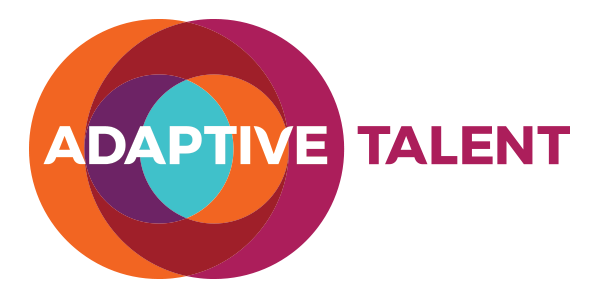Things That Talent Management Must Start Doing to Meet the VUCA Environment
Talent management leaders must prepare for disruptive problems and opportunities that cannot be predicted. Some of the action steps that you should take to prepare for complete surprises and the VUCA environment include:
- Agile employees — Develop as a primary goal a focus on the hiring, training, and retaining of employees and managers who are agile, who thrive in a VUCA environment, and those who have the capability of acting effectively in unforeseen and unpredicted situations.
- Agile processes — Require agility, flexibility, and a rapid change capability as an essential component in all current and new talent management processes and programs.
- Self-obsolescence of processes — Require all talent management programs and processes to include a component that continually “self-obsoletes” its own current practices and replaces them with updated ones.
- Training to solve unanticipated problems — training and development must create the capability to prepare employees and managers to identify and effectively handle previously unknown problems. A high volume of scenario training and simulations can make an employee more comfortable and confident when they encounter a completely new situation. With repetition, employees can eventually develop skills and their own processes for handling “brand-new” volatile and complex situations that are full of uncertainty and ambiguity.
- Focus on innovation — Prioritize talent management so that it focuses on innovators, game-changers, and pioneers who are essential for success in a VUCA environment.
- Rapid learning — Develop systems to increase the speed of individual and organizational learning.
- More internal movement — Develop process to proactively speed up the movement of employees internally to where they can have a greater impact.
- Contingent labor — Use contingent labor as a significant percentage of the workforce, in order to increase your capability to meet sudden upturns, downturns, and new skill needs.
- Rapid increase in talent — Develop the capability for rapid hiring for sudden needs through poaching, with pre-identifying talent pools and by building professional communities.
- Rapid release of talent — Develop the capability for rapidly releasing surplus and inappropriately skilled workers.
- Fluid job descriptions — Develop continually evolving job descriptions and hiring standards that reflect the continually changing work.
- Outsourcing for flexibility — Use outsourcing to fill sudden needs and overflow work.
- Competitive advantage — Develop talent management processes and programs that provide a continual competitive advantage over other talent competitors.
Things That Talent Management Must Stop Doing to Meet the VUCA Environment
Leaders must dramatically modify or stop doing the following things to prepare for a VUCA environment.
- Stop seeking permanent solutions in talent management and HR
- Stop relying on the past and trends as an accurate predictor of the future
- Stop benchmarking best practices and solutions to most current problems
- Stop assuming that long-term employee retention is possible or even desirable
- Stop assuming that “one-size-fits-all” is a good approach to managing employees
- Eliminate “fit” as a desirable criterion in hiring and retention
- Stop assuming that the corporate culture and even corporate values should automatically remain fixed
You Must Also Prepare for Disruptive Changes That Can Be Predicted
Although these listed problems will likely appear unexpectedly, these dramatic changes in talent management can be anticipated, so they must be planned for.
- A continually changing set of required employee skills and job duties and a huge gap between the needed and the available skill sets
- A completely new set of leadership skills that will focus on agility, flexibility, and in developing a “just-in-time” solutions capability within the team
- Dramatic fluctuations in employee turnover
- Continually changing candidate expectations
- Dramatic shifts in the volume and quality of applications
- Frequent changes in offer acceptance rates
- Continuous development of new communications and learning tools
- Generational changes that occurs every 6 years instead of 20
Final Thoughts
The new talent management model that I am recommending is based on the assumption that for the foreseeable future, most problems and opportunities will simply not be predictable. The model however does take advantage of the fact that the skill and capability of handling completely new unforeseen situations can be developed. My challenge and question to talent management leaders is “What are you doing to ensure that every talent management process and employee can produce optimal results in a VUCA environment? The time is come to put together a planning session devoted to making the shift toward the new agile talent management model.”
—
Adaptive Talent is a talent consultancy designed to help organizations achieve amazing results and ongoing adaptability. Founded in 2008 and based in Vancouver, Canada we offer retained search, assessments, total rewards consulting, training, leadership coaching and development programs, and culture & organizational development consulting.

